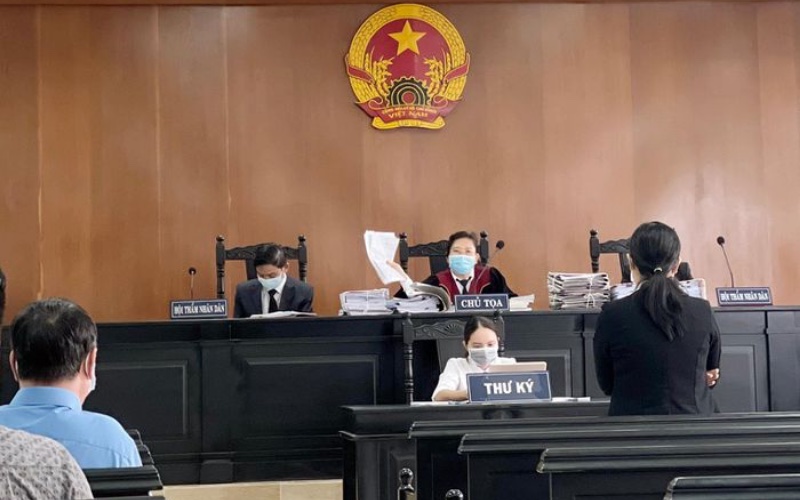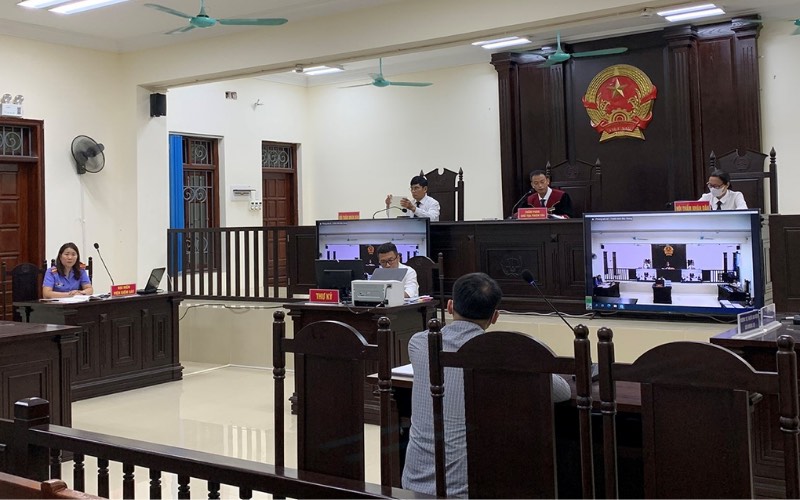First instance, appellate, cassation, and reopening are familiar concepts in Vietnamese litigation proceedings. According to the regulations on litigation, Vietnam applies the principle of two-level adjudication (first instance and appellate adjudication). Cassation and reopening are not adjudication levels but rather procedures for reviewing judgments or decisions of the Courts which have already taken legal effect in “special” cases. This article on distinguishing between first instance, appellate, cassation, and reopening procedures provides general overviews of the differences among these litigation procedures, while also helping readers understand certain legal provisions related to these procedures.
The basis for conducting the procedure
First instance is the initial adjudication procedure in the litigation process. At this stage, the competent Courts initially review and settle the matter based on the plaintiff’s request (in case of civil or administrative matters) or the prosecution decision of the procuracy (in case of criminal matters) and issue a judgment or decision resolving the matters/cases. Depending on the specific type of case, the resolution of the case through first-instance procedures is based on the principles, procedures, and processes stipulated in the applicable Code of Civil Procedure, Code of Criminal Procedure, and Law on Administrative Procedure.
Appellate is the second adjudication procedure in the litigation process. After the judgment or decision of the first instance Courts is issued, the litigants have the right to appeal and the Procuracy has the right to file an appeal if they disagree with the judgment or decision of the first instance Courts. Accordingly, the appellate Courts will conduct a retrial of the case.
Reopening and cassation are procedures for reviewing judgments and decisions of the Courts that have already become legally effective but were appealed. The basis for conducting these two procedures involves certain distinctions.
Reopening is conducted when a legally effective judgment or decision is appealed due to the appearance of newly detected details which may fundamentally change the contents of the judgments and decisions.
Cassation is conducted if there is one of the following basis: (i) The conclusions in the judgment or Courts decision do not align with the objective circumstances of the case; (ii) There is a serious violation of procedural regulation during the investigation, prosecution, or trial resulting in a significant error in the case resolution; (iii) There is a serious mistake in the application of the law. Since these two procedures can alter the content of judgments and decisions that have already become legally effective, only individuals with the authority of the Courts or the Procuracy have the right to appeal against judgments and decisions through the reopening or cassation procedures. The litigants, sentenced individuals, organisations, and all individuals have the right to detect violations in legally effective judgments and decisions of Courts and to notify the competent authority for the appeal to consider appealing against judgments and decisions according toreopening or cassation procedures.
Jurisdiction
The Courts with jurisdiction for first instance settlement may be the People’s Courts at the district level or the provincial level, depending on the type of the case. As for appellate level jurisdiction, in principle, the immediate superior Courts of the Courts that issued the first instance judgment or decision will have the authority to conduct appellate trials. Cassation and reopening jurisdiction belongs to the High People’s Courts concerning judgments and decisions issued by the District and Provincial People’s Courts within their respective territorial jurisdictions and the Supreme People’s Courts concerning judgments and decisions issued by the High People’s Court.
 Scope of adjudication
Scope of adjudication
Regarding the first instance procedure, particularly in the field of civil law, as per the Code of Civil Procedure 2015, the first instance level Courts only handle civil cases within the scope of a petition.
Regarding the appellate procedure, in principle, the appellate Courts only re-examine the part of the first-instance judgment or decision of the first instance Courts that is subject to appeal or related to the review of appealed matters. The remaining part of the judgment or decision that is not appealed to shall be enforceable.
Regarding the cassation and reopening adjudication procedures, the scope of adjudication includes the part of the judgment or decision that has become legally effective and is being appealed against or related to the review of the appealed contents. Additionally, the Cassation or Reopening Trial Panels have the authority to review the part of the content that is not being appealed or not related to the review of the appealed contents in cases where that content infringe upon the public interests, interests of the State, or the interests of the third parties other than the involved parties in the cases.
Trial outcomes
Regarding the first instance procedure, the first instance level Courts can issue decisions such as a decision to suspend/temporarily suspend the resolution of case, a decision to terminate the resolution of the case, or a decision on recognition of the agreements between involved parties during the mediation and trial preparation stage. At the conclusion of the trial stage, the first instance level Courts can issue a decision to recognise the agreement of the involved parties or a first instance judgment. The decisions of suspension or termination of case resolution by the first instance Courts will become effective after 07 days from the date the parties receive the decision, provided there is no appeal. The first instance judgment will become effective after 15 days from the date of the pronouncement if there is no appeal. For the decision to recognise the agreement of the parties, this decision will become legally effective immediately upon issuance and will not be subjected to appeal through the appellate procedure but may be appealed through the cassation procedure.
Regarding the appellate procedure, the appellate level Courts can issue decisions such as a decision to recognise the agreement of the involved parties or a decision to suspend or terminate the appellate trial during the trial preparation stage. During the trial stage, the appellate Courts may make the following decisions in the appellate judgment:
- To uphold the first instance judgment in cases where the appeal is unfounded;
- To revise a part or the entire first-instance judgment if the decision of the first-instance level Courts is unlawful;
- To annul the whole or parts of first instance judgments and transfer the case files to the first instance level Courts for retrial of the case through first instance procedure;
- To annul the first instance judgment and suspend the case resolution.
The decisions and judgments of the appellate Courts become legally effective from the date of issuing.
Regarding the cassation procedure, the Cassation Trial Panel can issue one of the following decisions:
- Not to accept the appeal and to uphold the judgment or decision that has become legally effective in cases where the judgment or decision is correct and the appeal is unfounded;
- To uphold the lawful judgment or decision of the subordinate Courts that has been annulled or amended incorrectly;
- To annul a part or the entire judgment or decision of the Courts that has become legally effective in order to conduct a new trial through the first instance procedure or appellate procedure;
- To annul the judgment or decision that has become legally effective and to suspend the case resolution under the circumstances as provided by law;
- To amend a part or the entire judgment or decision of the Courts that has become legally effective when the following conditions are met: (a) The case file documents and evidence are sufficient and clear; havingsufficient grounds to clarify the circumstances of the case; (b) Amending the judgment or decision subject to appeal does not affect the rights and obligations of other organisations, individuals, or entities.
These decisions shall be legally effective from the date the Cassation Trial Panel issues the decisions.
Regarding the reopening procedure, the Trial Panel for reopening can issue one of the following decisions:
- Not to accept the appeal and to uphold the judgment or decision that has become legally effective (in this case, the judgment or decision of the Courts that is appealed to remains enforceable);
- To annul the judgment or decision that has become legally effective and conduct a retrial through first instance procedure if the appeal is founded;
- To annul the judgment or decision that has become legally effective and suspend the case resolution.

Above is the general content related to the distinguish between first instance, appellate, cassation, reopeningprocedures that Phuoc and Partners share with readers. If you have any difficulties related to the legal field, please contact us. Phuoc & Partners is a law professional consulting firm established in Vietnam and which currently has many nearly 100 members working in offices in Ho Chi Minh City, Hanoi and Danang. Phuoc & Partners is also considered as one of the leading law firms with specialised staff in the legal field in Vietnam, whose practice areas are ranked first in the legal market such as Labour and Employment, Taxes, Mergers and Acquisitions as well as Litigation. We are confident to be one of the Law Firms providing the best legal services to clients.

